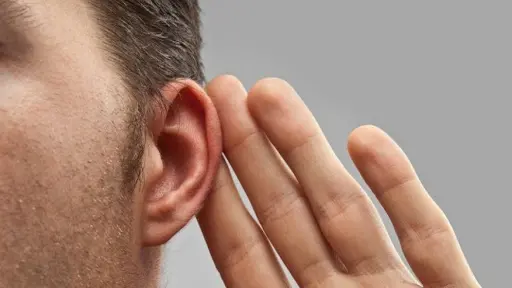- Home
- Medical news & Guidelines
- Anesthesiology
- Cardiology and CTVS
- Critical Care
- Dentistry
- Dermatology
- Diabetes and Endocrinology
- ENT
- Gastroenterology
- Medicine
- Nephrology
- Neurology
- Obstretics-Gynaecology
- Oncology
- Ophthalmology
- Orthopaedics
- Pediatrics-Neonatology
- Psychiatry
- Pulmonology
- Radiology
- Surgery
- Urology
- Laboratory Medicine
- Diet
- Nursing
- Paramedical
- Physiotherapy
- Health news
- Fact Check
- Bone Health Fact Check
- Brain Health Fact Check
- Cancer Related Fact Check
- Child Care Fact Check
- Dental and oral health fact check
- Diabetes and metabolic health fact check
- Diet and Nutrition Fact Check
- Eye and ENT Care Fact Check
- Fitness fact check
- Gut health fact check
- Heart health fact check
- Kidney health fact check
- Medical education fact check
- Men's health fact check
- Respiratory fact check
- Skin and hair care fact check
- Vaccine and Immunization fact check
- Women's health fact check
- AYUSH
- State News
- Andaman and Nicobar Islands
- Andhra Pradesh
- Arunachal Pradesh
- Assam
- Bihar
- Chandigarh
- Chattisgarh
- Dadra and Nagar Haveli
- Daman and Diu
- Delhi
- Goa
- Gujarat
- Haryana
- Himachal Pradesh
- Jammu & Kashmir
- Jharkhand
- Karnataka
- Kerala
- Ladakh
- Lakshadweep
- Madhya Pradesh
- Maharashtra
- Manipur
- Meghalaya
- Mizoram
- Nagaland
- Odisha
- Puducherry
- Punjab
- Rajasthan
- Sikkim
- Tamil Nadu
- Telangana
- Tripura
- Uttar Pradesh
- Uttrakhand
- West Bengal
- Medical Education
- Industry
COVID-19 can cause hearing loss, balance disorders, and tinnitus: Study

USA: COVID-19 infection is associated with auditory and vestibular side effects including hearing loss, balance disorders, and tinnitus, finds a recent study. This adds to the growing list of symptoms in COVID-19 patients. Other complications of the infections included loss of taste, respiratory distress, and many effects that can last for months.
Chloroquine and hydroxychloroquine -- which are recommended for malaria treatment -- are also proposed for the treatment of COVID-19. The use of which can have auditory side effects including tinnitus, and due to high doses used in COVID-19 patients there is an increased likelihood of side effects.
The findings of the study were presented at the 180th Meeting of the Acoustical Society of America held virtually from June 8-10.
In the meeting Colleen Le Prell, from the University of Texas at Dallas, talked about hearing and balance disorders associated with coronavirus infection and how pandemic-related stress and anxiety may aggravate tinnitus symptoms.
The factors that may play a role in the relationship between COVID-19 and hearing are multifold. COVID-19 is known to have inflammatory effects, including in neurological tissue, which can exacerbate other problems.
"Inflammation can damage the auditory and vestibular pathways in the peripheral and central nervous system, just as it damages smell and taste pathways, and other neural systems," said Le Prell.
In addition to new injury, there are several studies suggesting the mental anxiety caused by the pandemic, such as lockdown-related stress and concerns about the negative impacts of masks on audibility and communication accessibility, may magnify the auditory impacts of the virus. This is especially so for people who already had tinnitus, prior to the pandemic.
"Increases in tinnitus bothersomeness were associated with reports of pandemic-related loneliness, sleep troubles, anxiety, depression, irritability, and financial worries," Le Prell said. "In other words, participants who experienced general increases in stress reported their tinnitus to be more bothersome than before the pandemic."
Some early experimental treatments, like chloroquine and hydroxychloroquine (which are not recommended by the National Institutes of Health), can also have auditory side effects, particularly in patients with kidney problems.
"When the kidneys are not functioning properly, the drug may not [be] metabolized and eliminated from the body as quickly, which can increase physiological drug concentrations and risk of side effects," Le Prell said. "Old age is often accompanied by decreased renal function, and COVID-19 can cause renal dysfunction, which increases the risk that a patient who is given an experimental therapy for COVID-19 will be at risk for ototoxicity."
The presentation will also present more details on the possible ototoxicity of COVID-19 and investigational COVID-19 therapeutics.
Reference:
"Hearing disorders secondary to infection with SARS-CoV-2," was presented at the 180th Meeting of the Acoustical Society of America.
DOI: https://asa.scitation.org/doi/abs/10.1121/10.0005350
Hina Zahid Joined Medical Dialogue in 2017 with a passion to work as a Reporter. She coordinates with various national and international journals and association and covers all the stories related to Medical guidelines, Medical Journals, rare medical surgeries as well as all the updates in the medical field. Email: editorial@medicaldialogues.in. Contact no. 011-43720751
Dr Kamal Kant Kohli-MBBS, DTCD- a chest specialist with more than 30 years of practice and a flair for writing clinical articles, Dr Kamal Kant Kohli joined Medical Dialogues as a Chief Editor of Medical News. Besides writing articles, as an editor, he proofreads and verifies all the medical content published on Medical Dialogues including those coming from journals, studies,medical conferences,guidelines etc. Email: drkohli@medicaldialogues.in. Contact no. 011-43720751


